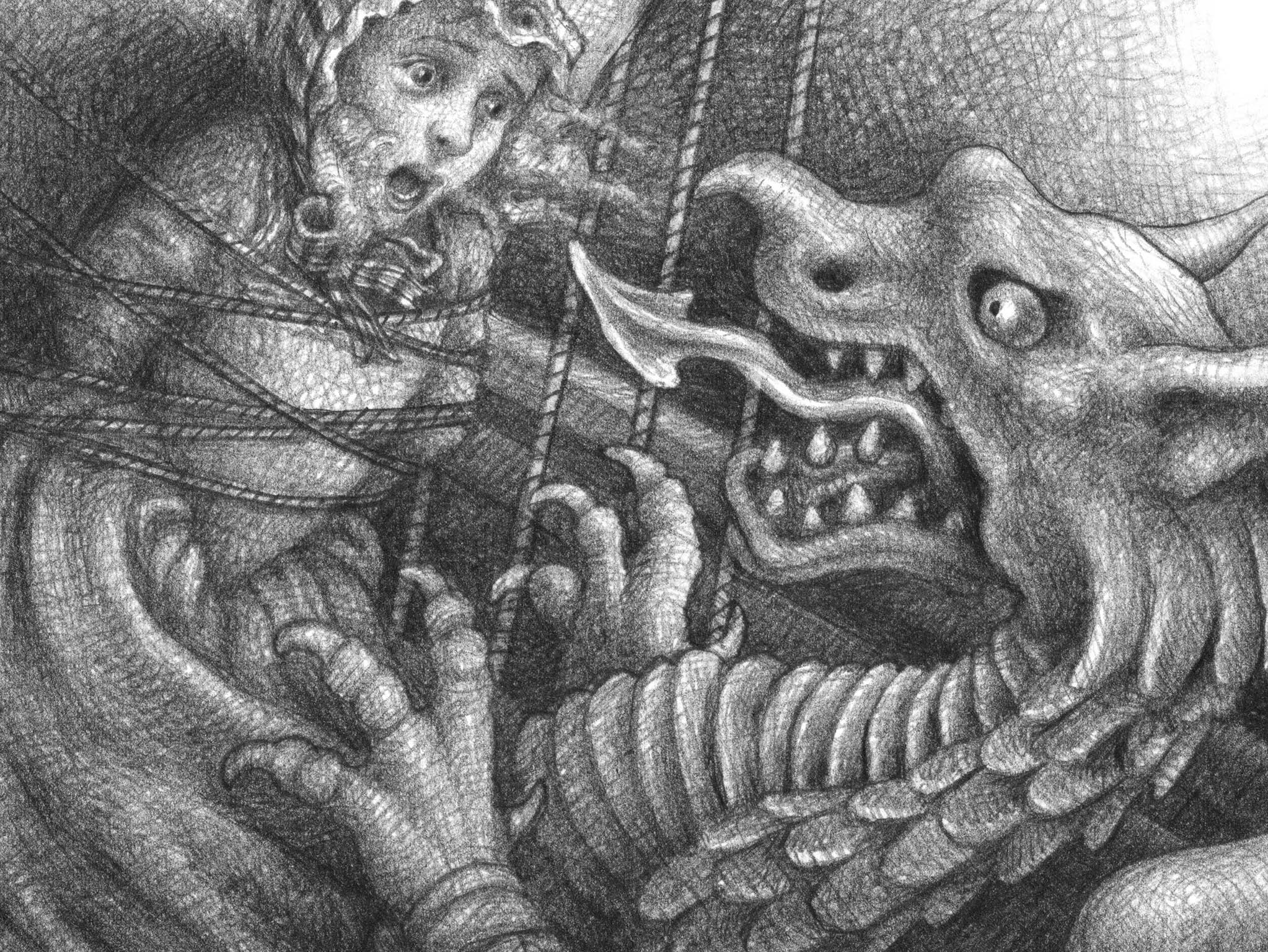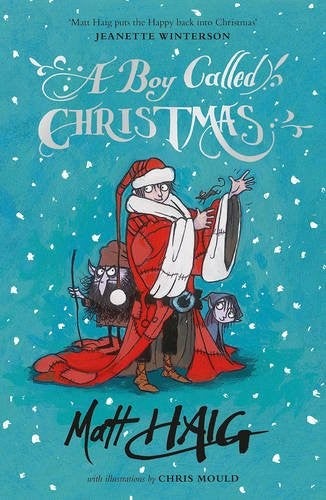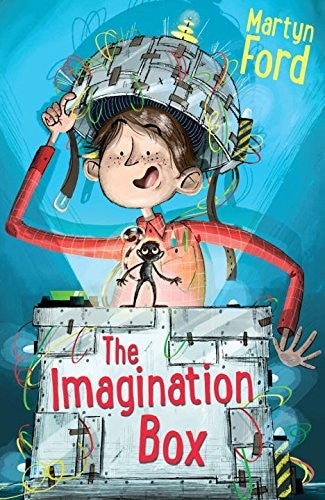Christmas 2015: Books to inspire young people
Daniel Hahn selects the best titles this Christmas for children aged five to 11

There’s plenty of good atmospheric winter fare around at the moment, from Emma Carroll’s lovely Victorian The Snow Sister to Misha Hoekstra’s new translation of Andersen’s The Snow Queen. But I’m going to start with the snowiest, Christmassy-est book of all, Matt Haig’s magic new A Boy Called Christmas (Canongate, £12.99).
It’s the story of Nikolas of Finland, the grimly poor boy who over the course of the story becomes Father Christmas. And it’s a delight – infused with the warmth and the kind of charm that guarantees certain children’s books a long, long life. Much credit, too, to the always-brilliant Chris Mould on illustrations.
Talking of which, can you imagine a more appealing illustrator-writer dream-team than Oliver Jeffers and Eoin Colfer? And their first collaboration, Imaginary Fred (HarperCollins, £12.99), more than delivers on the promise, bringing out the very best of these great complementary talents.

It’s a gorgeous book about Imaginary Fred who finds a (non-imaginary) boy to befriend him – developing into a story about the gift of friendship that is unusual and immensely touching.
And those illustrations! Jeffers’s inimitable style, with cleverly used half-tone colour for the “imaginary” characters – a perfect match.
Meanwhile, Brian Selznick has made a certain kind of words’n’pictures style that’s entirely his own.
Following on from The Invention of Hugo Cabret and Wonderstruck, he now gives us The Marvels (Scholastic, £16.99), which like its predecessors uses partly unillustrated text and partly wordless pencil pictures; and it is – also like its predecessors – a stunning success.
The picture story begins with a shipwreck in 1766, and spans more than a century of life in the London theatre; the other, told in words, is modern-day, beginning in Folgate Street in 1990. But how are they connected?
Next up, some very old and familiar characters make a triumphant return, in Asterix and the Missing Scroll (Orion, £10.99), the latest album in the classic series. It’s the second one from the new creative team, Jean-Yves Ferri and Didier Conrad, and they’ve really found their feet now – this is the best in many a year.
Julius Caesar has written his sure-to-be bestselling memoirs, but the publisher, Libellus Blockbustus, has a serious problem because, thanks to an idealistic scribe named Bigdatha, a copy of the one secret chapter has found its way to a certain Gaulish village …. An energetic story, with some very bad/good jokes, and just enough silly Roman-bashing, it’s just the sort of thing we Asterix fans love.
Oh, and best of all, it’s in the hands of stalwart translator Anthea Bell – incidentally the only person in the world to have worked on every Asterix book, over more than half a century!
Yes, Asterix is that rarest of beasts, a translated children’s book. We publish dismayingly few in this country, though I think this year has seen some improvement. (We’ve even had one from a Nobel prize-winner, Patrick Modiano’s delicately beautiful Catherine Certitude, with Sempé illustrations.)

Many of the best international books have come, as ever, from Pushkin Press, among them the funny, truly unique Meet at the Ark at Eight (Pushkin, £6.99), by Ulrich Hub, illustrated by Jörg Mühle. Of all the books about a penguin in a suitcase pretending to be God asking for a cheesecake, this one is absolutely, definitely my favourite. It’s the quirky tale of three penguins on Noah’s ark debating the existence of God and trying to keep out of trouble. A slim book filled with philosophical ideas and theological inquiry, it’s a lovely one to read to younger children. Yes, really.

Sticking with international books, but in an entirely different vein (though likewise pretty special), there’s the heart-warming Chinese novel Bronze and Sunflower (Walker, £6.99) by Cao Wenxuan, in a translation by Helen Wang. It’s a lyrical, engaging story of two children who meet and help each other to survive – Bronze, a desperately poor mute boy, and Sunflower, the girl who comes to live with him. It’s set during the Cultural Revolution, which began in China in 1966, but the story feels somehow timeless, too.
Closer to home … well, I am trying hard to resist recommending Binny in Secret, by the unimprovably good Hilary McKay, just because I am constantly recommending Hilary McKay; so how about a newcomer instead? Try The Imagination Box (Faber, £6.99), a terrific debut novel by Martyn Ford. Tim lives in a hotel where he befriends an odd scientist who has developed an Imagination Box, which can generate any object – inanimate or animate – that Tim thinks of. First there’s a badly burned sausage; then a very eloquent finger-monkey called Phil; and then …. The only limit to all this is Tim’s imagination. What could possibly go wrong? Well, lots. And it all starts when the Professor goes missing …. Lively, funny, and a great celebration of wild imagination, The Imagination Box is classic children’s storytelling. I do hope there’s more to come.
And … there are so many others to choose from! I’d like to recommend Phil Earle’s hilarious and touching Demolition Dad, with perfectly suited illustrations by Sara Ogilvie; or The Hollow Boy, the latest in Jonathan Stroud’s thrilling series about the Lockwood and Co Psychic Detection Agency.
Then there’s Roland Chambers’ delightfully fun Nelly and the Quest for Captain Peabody; or Sam Gayton’s Hercufleas, an original, exciting adventure story with a very tiny hero.
However, I do need to save my last slot for the wintry world of Katherine Rundell’s latest, and probably my book of the year.
The Wolf Wilder (Bloomsbury, £12.99) does everything that all my favourite books do.
It creates a world – Russia, a century back, a place of hardship and dramatic beauty; it brings irresistible characters to life – both humans and wolves, with the brave, wolf-riding girl, Feo, at the centre; it tells a great story – Feo and her new friends have to rescue her imprisoned mother; and, most of all, it does all this in a voice that is distinctive and assured and utterly compelling. Once upon a time, – it begins – a hundred years ago, there was a dark and stormy girl ….
Daniel Hahn is the author of The Oxford Companion to Children’s Literature, £30
Subscribe to Independent Premium to bookmark this article
Want to bookmark your favourite articles and stories to read or reference later? Start your Independent Premium subscription today.




Join our commenting forum
Join thought-provoking conversations, follow other Independent readers and see their replies
Comments